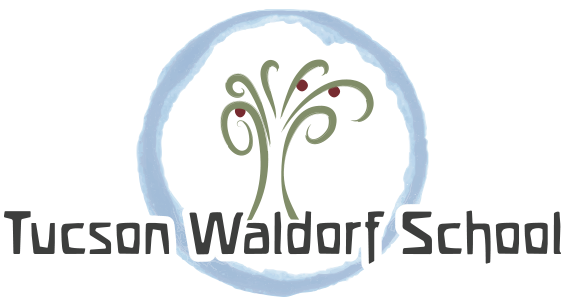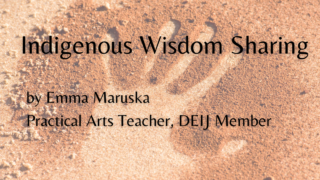by Emma Maruska,
Practical Arts Teacher, DEIJ Committee Member
Beginning in October, the DEIJ Committee sought out community involvement in developing an initiative to bring more local Indigenous culture and appreciation to our school. Through conversation with our parent community, a lot of amazing resources have been brought forward – through individual people and through organizations dedicated to promoting understanding and respect for our region’s cultural heartbeat and lands. Here are just a few of the resources that our parent community has shared. These are awesome opportunities for us, as individuals and families, to engage in learning more about and appreciating our Native roots.
First, the University of Arizona’s Indigenous Teacher Education Program is hosting a virtual Winter Story Series. For four days, starting Tuesday, December 19, you can hear stories shared by storytellers and share-ers within our Southern Arizona community. Register here.
Second, the Tohono O’odham Cultural Center and Museum just opened two new community-curated exhibits as part of the series They Don’t Love You Like I Love You: Indigenous Perspectives on Sovereignty. This series also includes an exhibit curated by members of the Pascua Yaqui community, displayed at the Richey Resource Center in Tucson, and an exhibit curated by members of the Gila River and Salt River communities, featured at the Huhugam Heritage Center in Chandler.
And finally, if you are interested in going deeper into the conversation around our shared crisis and the consequences of the global industrialized society we currently live in, check out the podcast series Holding the Fire, which uncovers Indigenous ways of reckoning with environmental and societal breakdown. If you’re concerned about climate change, species extinctions, loss of social cohesion, the specter of collapse, and other aspects of the Great Unraveling, you might be interested in the insight and wisdom gained from the lived experience and cultural memory shared in this project.
A special thanks to the individuals who brought forward the resources above, and to all of those folks who added their insights and ideas to the conversation. There are many more ideas that have been shared through our TWS community, and an amazing list has been formed. The DEIJ Committee shared this list with our College of Teachers this week. Together, our hope is that we can bring school-wide local Indigenous wisdom and education to our students this year, and begin to imagine and plan for integrating local Indigenous knowledge into our curriculum and school experience going forward. If you are interested in getting involved in our community conversation around Indigenous heritage and other DEIJ-related work, please email [email protected].
_____________
Tucson Waldorf School acknowledges that the lands on which we teach, learn, grow, and thrive are the traditional, ancestral, and unceded territories of the Hohokam, the Tohono O’odham and the Pascua Yaqui peoples who have been enriching this land for thousands of years. We are grateful to learn from the lifeways these Indigenous peoples have developed through the labor of their hearts, hands, and minds over the centuries. We acknowledge the historical injustices perpetrated on Indigenous people, that colonialism is still an ongoing process, and we strive to be mindful of our own participation.

